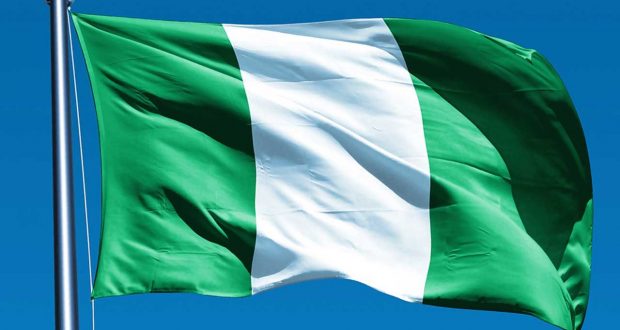Nigerian civil war: 50 years after – New Telegraph
It is exactly 50 years today that the Nigerian civil war, otherwise known as the Biafran war ended. The war officially ended on January 15, 1970, when the separatist Biafra led by the late Chukwuemeka Odumegwu-Ojukwu finally surrendered to the Nigerian government led by then Head of State, Gen. Yakubu Gowon.
January 15, 1970 was the day both parties formally accepted the end of the war, following Ojukwu’s flight to Ivory Coast a few days earlier. The job of announcing the surrender was left to his second in command, Philip Effiong, who announced the surrender on January 12, 1970.
With the acceptance of the surrender and formal closure of the war, which started on July 6, 1967, Nigeria closed the chapter of the almost three years of war between brothers, which claimed the lives of over two million people. Although there were causalities on the Nigerian side, there is no doubt that the larger figure was on the Biafran side.
On May 30, 1967, the head of the Eastern Region of Nigeria, Ojukwu, had unilaterally declared the independent Republic of Biafra. That led the foundation for what was to become an almost three-year war with the Gowon-led Federal Government. It was a culmination of activities of dissatisfaction, which ranged from massacre of the Igbo in the Northern region, to harassment and other issues. Of course, the main issue was the coups and counter coups of 1966 that left causalities in the military from both sides. There were also issues of mutual ethnic suspicion, fear of domination, inequitable power distribution and others that laid the foundation for the coups and counter coups.
To his credit, the Gowon administration, which supervised the armistice, was bold to declare a no victor no vanquish end to the war, with the introduction of the now famous three Rs to bring the whole country together.
Exactly nine years after the war, Nigeria held its first democratic elections under the leadership of then Head of State, Olusegun Obasanjo and elected the Shehu Shagari and Alex Ekwueme administration, which was overthrown on December 31, 1983, by the military. The gains made by Nigeria within the nine years that the war ended, which could be seen in the Shagari-Ekwueme emergence, was wiped off with successive military coups between 1983 and 1999 when democracy returned to the country. Currently, the democratic process since 1999 is the longest uninterrupted democratic process in the history of the country.
Fifty years is a long time in life. But it is hard to know if Nigeria has learnt anything from its history, 50 years after the war. Apart from the often vaunted statements of the indivisibility of the country, mouthed by different leaders, it does not appear that much has changed from the pre-war days. The fear of ethnic dominance, the division along ethnic and religious lines, imbalance in politics and unequal opportunities in the state of affairs of the country are still with us today. Rather than use the end of the war as a lesson to further build a stronger country, successive leaders and their cohorts have continued to march round in cycles, with the mistakes of the past regularly recycled.
It is instructive to note that when the war ended, Gowon’s regime introduced the National Youths Service Corps (NYSC) and the Unity Schools towards fostering unity among young Nigerians. There is no contest that the ideas behind such schemes, among numerous others, were noble. But can we beat our chest today to say that Nigerians have used such means for the real purpose they were set up? The answer is a resounding no! Rather, such programmes are standing today as mere symbols or signposts of the administration that established them.
There is no doubt that the country has remained one since then, even if forcefully. But it is a testament to the lack of unity of purpose that since after the war and particularly since the return of democracy 20 years ago, such divisive groups as the Movement for the Actualisation of the Sovereign State of Biafra (MASSOB), the Indigenous People of Biafra (IPOB), Oodua Peoples Congress (OPC), Movement for the Emancipation of Niger Delta (MEND), Boko Haram and other similar groups have cropped up to national consciousness.
At the higher level, there is the Afenifere, Ohanaeze, Arewa Consultative Forum (ACF), Northern Elders Forum (NEF), Pan Niger Delta Forum (PANDEF) and all others geared only towards the protection of regional and clannish ethnic interests.
Thus, while the eyes of Nigerians are focused on their regional or ethnic interests, the overall interest of Nigeria as a corporate entity is relegated to the background. It is still the ethno-religious sentiments that play up in national affairs.
We have no doubt that such sentiments have affected Nigeria in a negative way. Fifty years after the civil war, the same issues that led the country to war are even more pronounced. Nigeria is so badly divided along ethnic and religious lines. Merit is sacrificed on the altar of ethno-religious sentiments. Such issues as federal character, quota system and their sister coinages remain at the lip service level with little or no effort at building a national consensus or cohesion.
We believe that having soldiered on for 50 years after the civil war and 60 years as an independent nation, Nigerians and their leaders need to pick some lessons from the war and build an enduring nation, where all will be happy.




